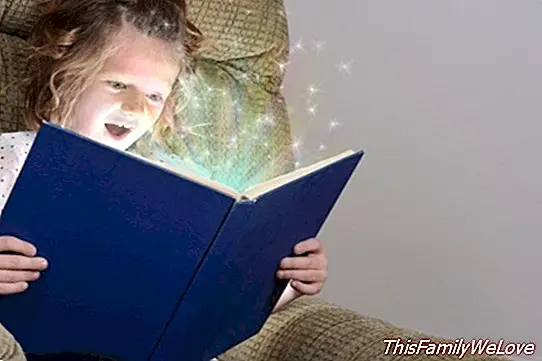The benefits of children's literature


Reading is good for big and small and that does not put anyone in doubt. Children should not only read, but should develop a love of reading but ... What should they read? Sometimes, debates are created about whether the call "children's literature", that is, thought for children, is good or bad for them. We tell you the main benefits for children of this kind of works.
The family and the school have an important role when it comes to bringing knowledge to children, and much of this new wisdom comes from books and their reading comprehension. Parents, in addition to setting an example, we must know what is best for children to read: what is the recommended literature, quality and, of course, affordable for the first ages of children.
And the fact that children receive literature from early childhood is very important, as this will determine their written communication and, in addition, reading is an important tool to build the identity of children. Therefore, we tell you the main benefits of children's literature, designed especially for children.
Children's literature themes
The main benefit we find in children's literature is that it usually deals with very important issues in life (death, friendship, self-esteem, etc.) in a pleasant and close way, allowing the child to form a first idea of these issues so relevant that you will experience it in the first person as time goes by.
In this way, in children's literature we find protagonists who are very similar to our children and who have similar concerns to theirs. Through these books the children see how other "equals" reflect on this, ask themselves about these issues and look for the answers, so this kind of behavior also encourages the curiosity of our children.
Children's literary tradition
Popular games, children's songs, stories, fables, tongue twisters, rhymes ... all this is part of our literary tradition, that which has been transmitted orally from generation to generation and that we can now find written in children's books .
This is very important because the oral tradition tells our story, who we are and where we come from.
This is another of the great benefits of children's literature: many works have been created from this tradition, and through their reading the children learn that history and also the culture, history and a very rich vocabulary different from the one they are used to. to use daily.
Humor in children's literature
Humor is usually present in stories for children, whether adventure stories, fantastic stories or everyday life. Reading stories in which touches of smoke appear, young children learn to value it as necessary in life.
The sense of humor also has a great pedagogical value: it teaches our children to relativize and is a means by which the small reader begins to develop the necessary critical sense. All this, without forgetting that laughter makes reading more enjoyable, so they encourage the child not to close the book.
Knowing yourself through children's literature
All the benefits that we have mentioned before are related to this other: by reading about similar people and knowing their history and culture, the children learn to be accepted and to accept the different ones.
The characters in the stories of the children's books help the children to know themselves as they identify that the characters in the stories live their experiences and, thus, learn from their lessons. In short, with this kind of literature children see clear examples of how they should act in situations that are close to them, so it helps them when they see them.
The language of children's literature
One of the main reasons that justify the importance of reading is the vocabulary that is acquired, and it was not going to happen differently with children's literature. With it, children learn words, synonyms, metaphors and unusual syntactic constructions thanks to the kind of language these stories use.
If your child reads literature designed for readers of his age, he will acquire a more precise language and his vocabulary will be expanded, while he will learn almost inadvertently spelling and writing rules. In addition, it is very common that this class of works have many word games, which keeps the mind of the child awake and teaches that you can also "play" with the language.
Emotions in children's literature books
Children's literature often includes many common feelings and emotions in children's lives.The enormous variety of feelings reflected in these stories, which goes far beyond sadness or joy, teaches the child to identify his own emotions, which helps him to develop and understand them.
In this way, literary works fulfill a very important educational task, since they intervene in the formation of the emotional intelligence of children, something key to their present and future affective development.
Perceptions through the reading of children's books
In these books, scenes with a great sensory, visual and even sonorous power are built, which helps the child to develop his capacity to "judge the attitudes of the characters in a conflict situation and to relate these attitudes to their own experiences and values. ", as the teacher of Infant Education of Huelva María Carmen Morón explains in an article in the magazine Subjects for Education. In his opinion, literature helps assess situations, assess others' behaviors and predict the consequences they will have.
If these great benefits of children's literature are fulfilled, children will learn naturally the taste for literary works as they grow, which will have many more benefits in their life and their knowledge.
Angela R. Bonachera




